Clusters of Interest
Let’s now examine the clusters of the top tags in detail.
Sunglasses
The tag “sunglasses” appears most frequently, which is understandable as sunglasses often serve as a versatile accessory to various outfits.
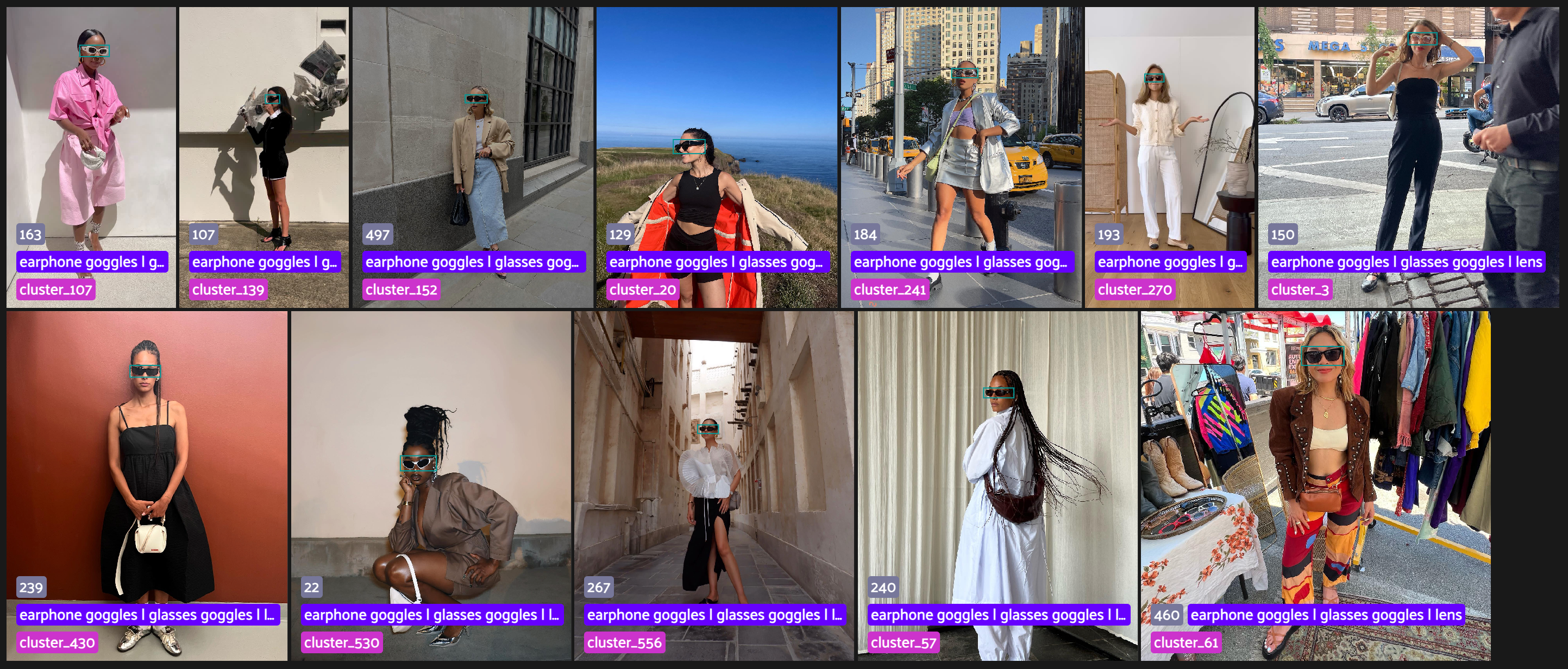
Clusters tagged with “sunglasses”.
However, not every cluster labeled with “sunglasses” is noteworthy. Due to the generic nature of accessory styles, many of these clusters consist of classic sunglass designs that don’t offer insights into emerging fashion trends.
These clusters are usually larger in size. Utilizing Fiftyone’s feature to zoom into the image patches within the bounding boxes, we can closely examine the details of these sunglasses.
For instance, the following clusters represent classic sunglass styles:
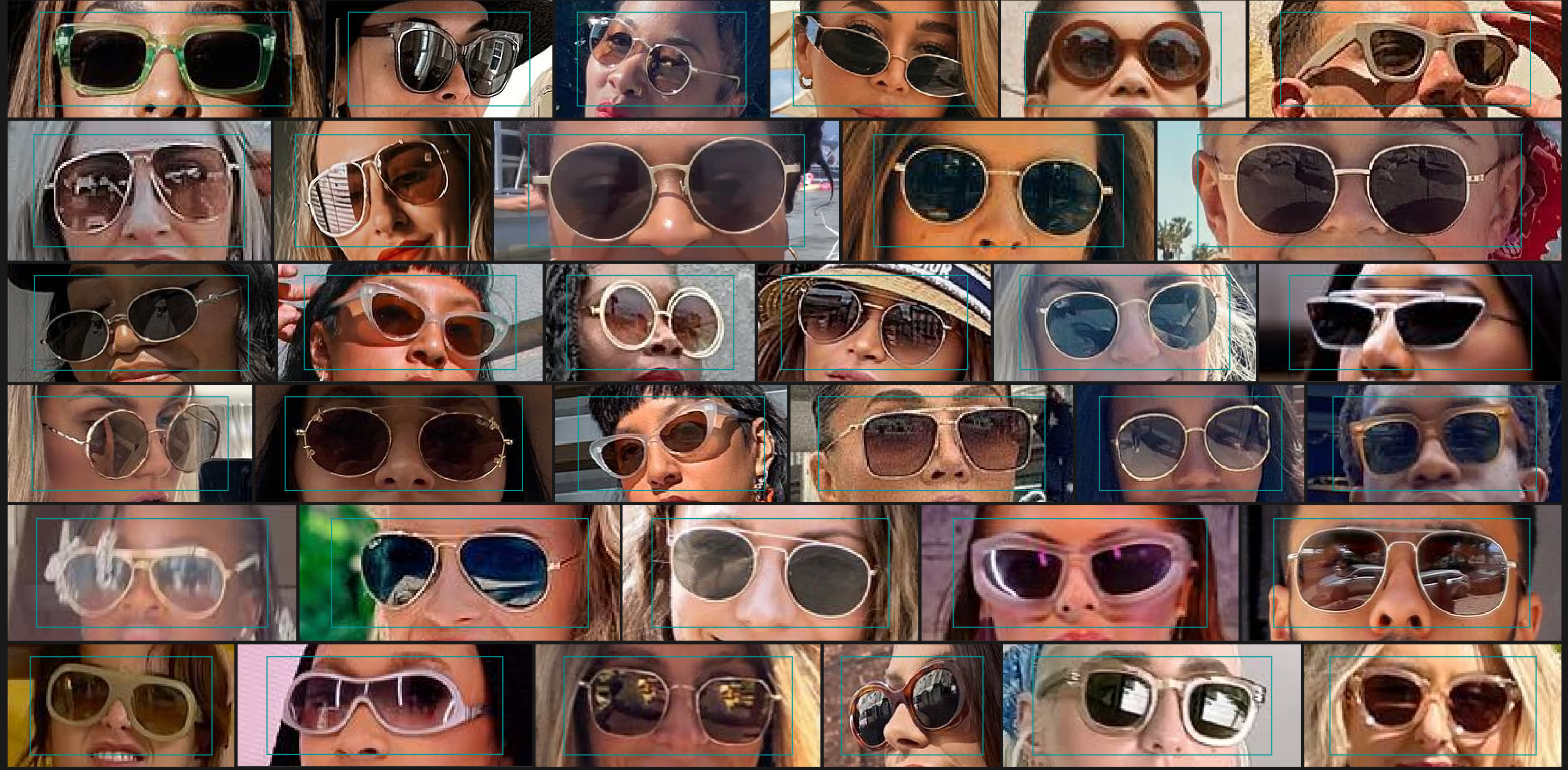 Cluster 241 | 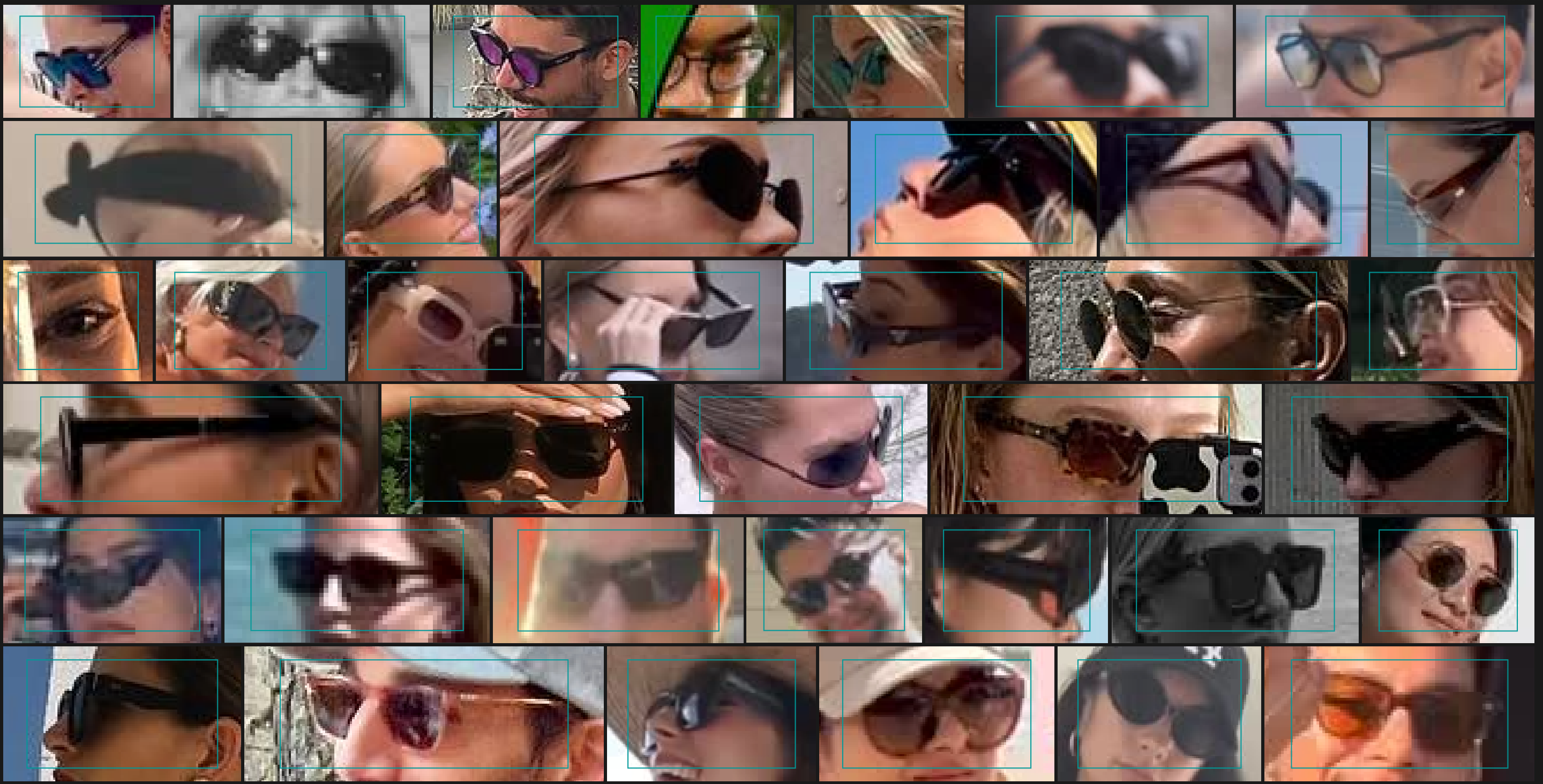 Cluster 139 |
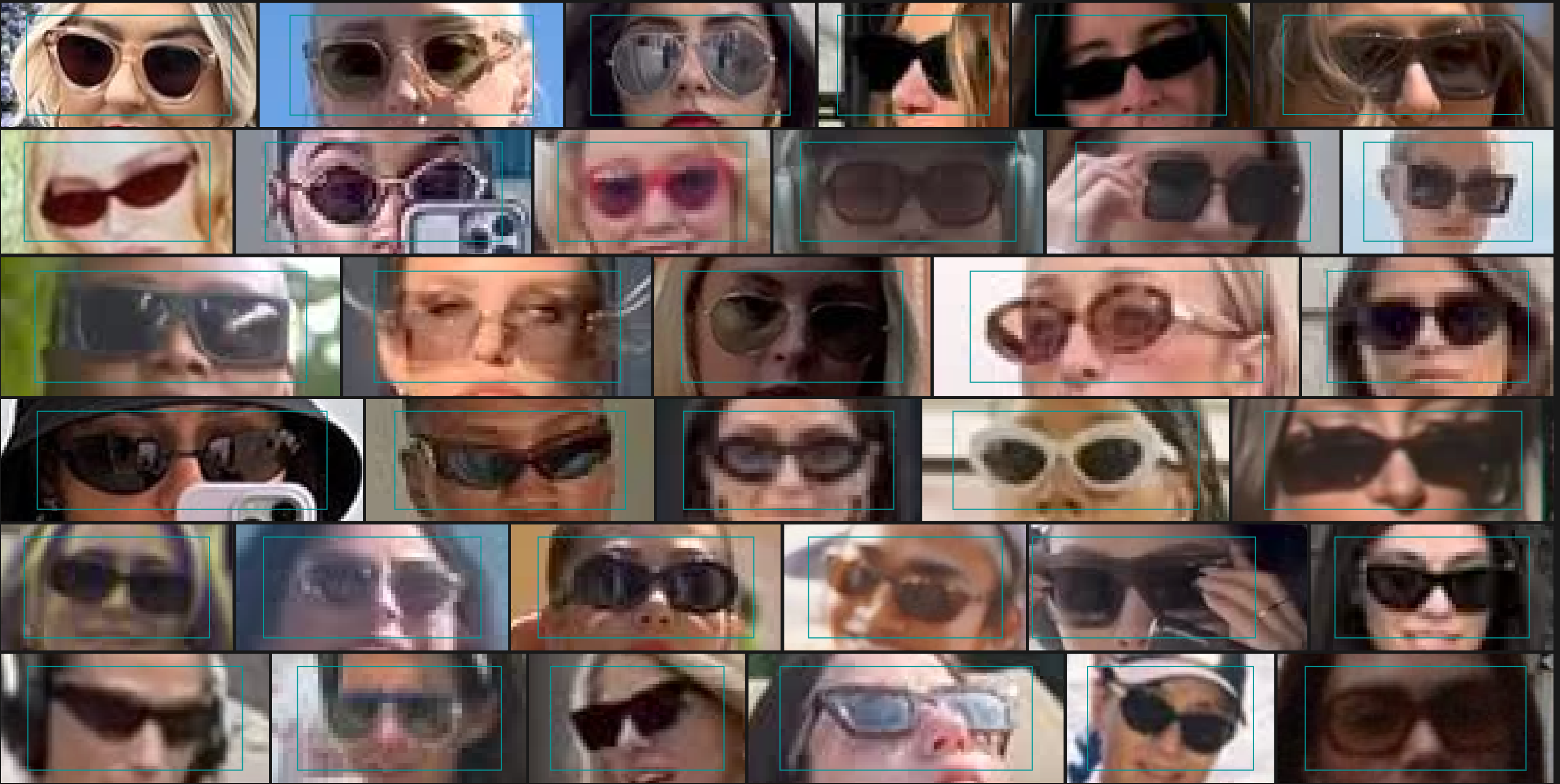 Cluster 270 | 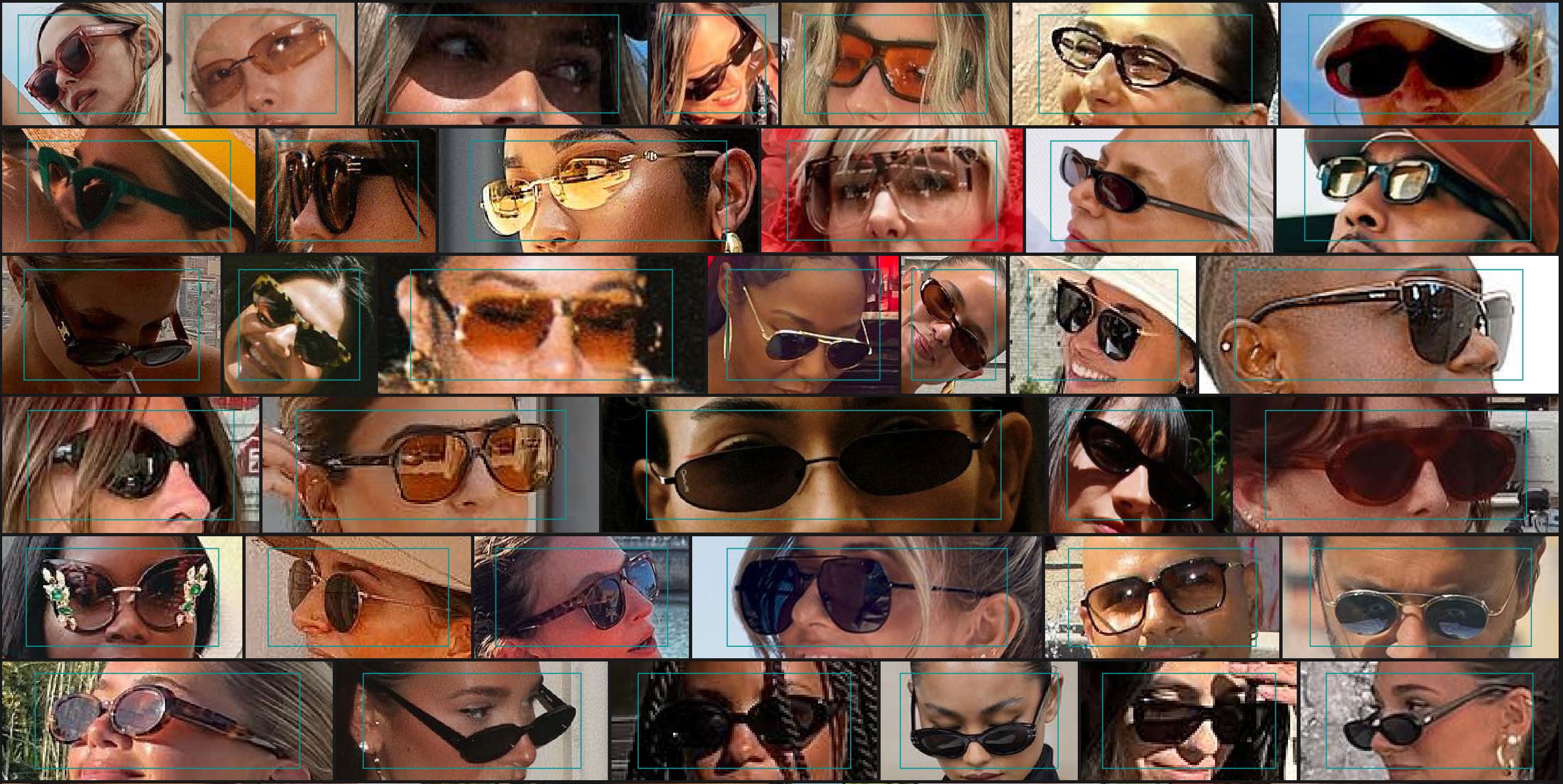 Cluster 57 |
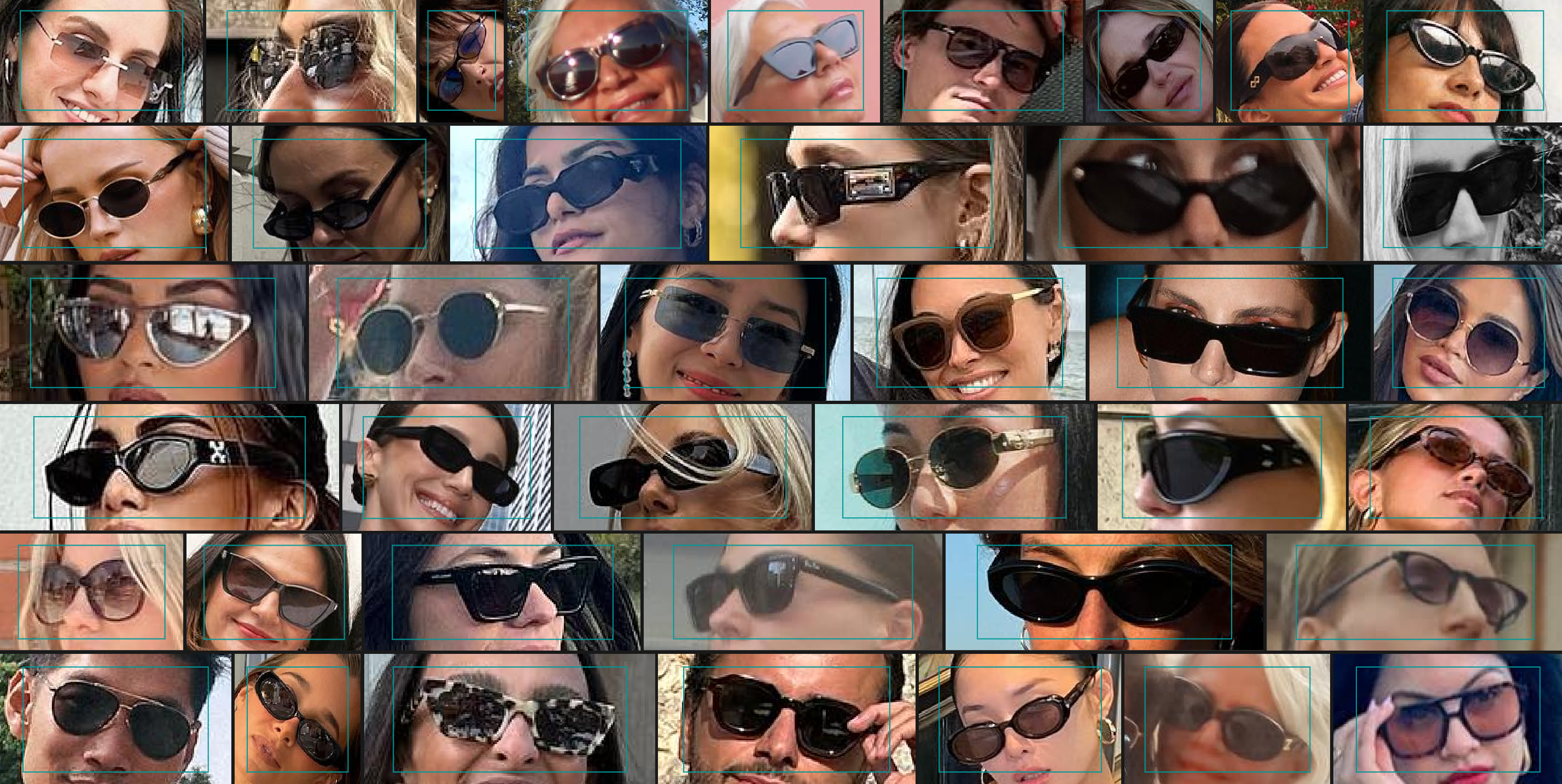 Cluster 152 | 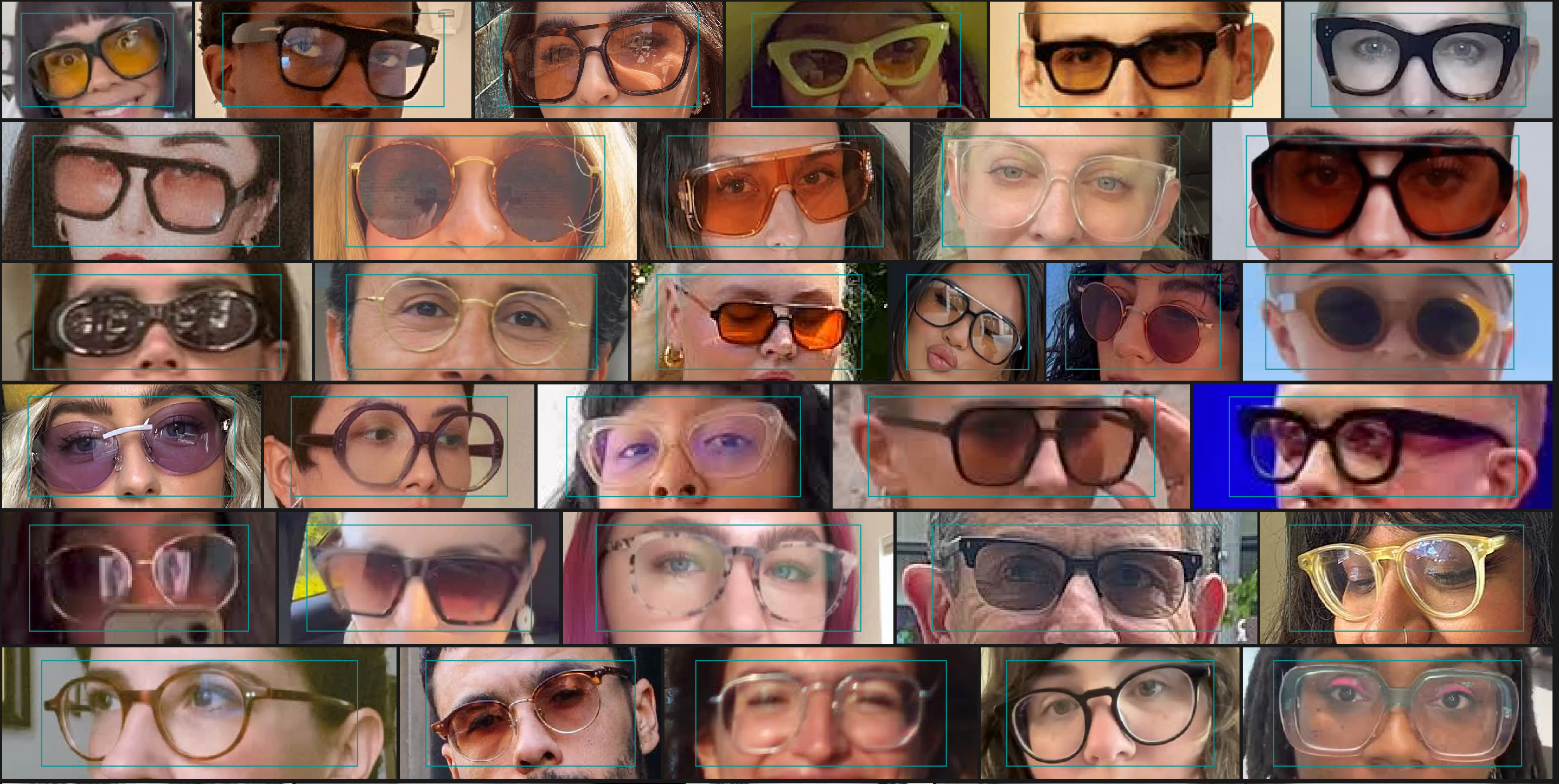 Cluster 3 |
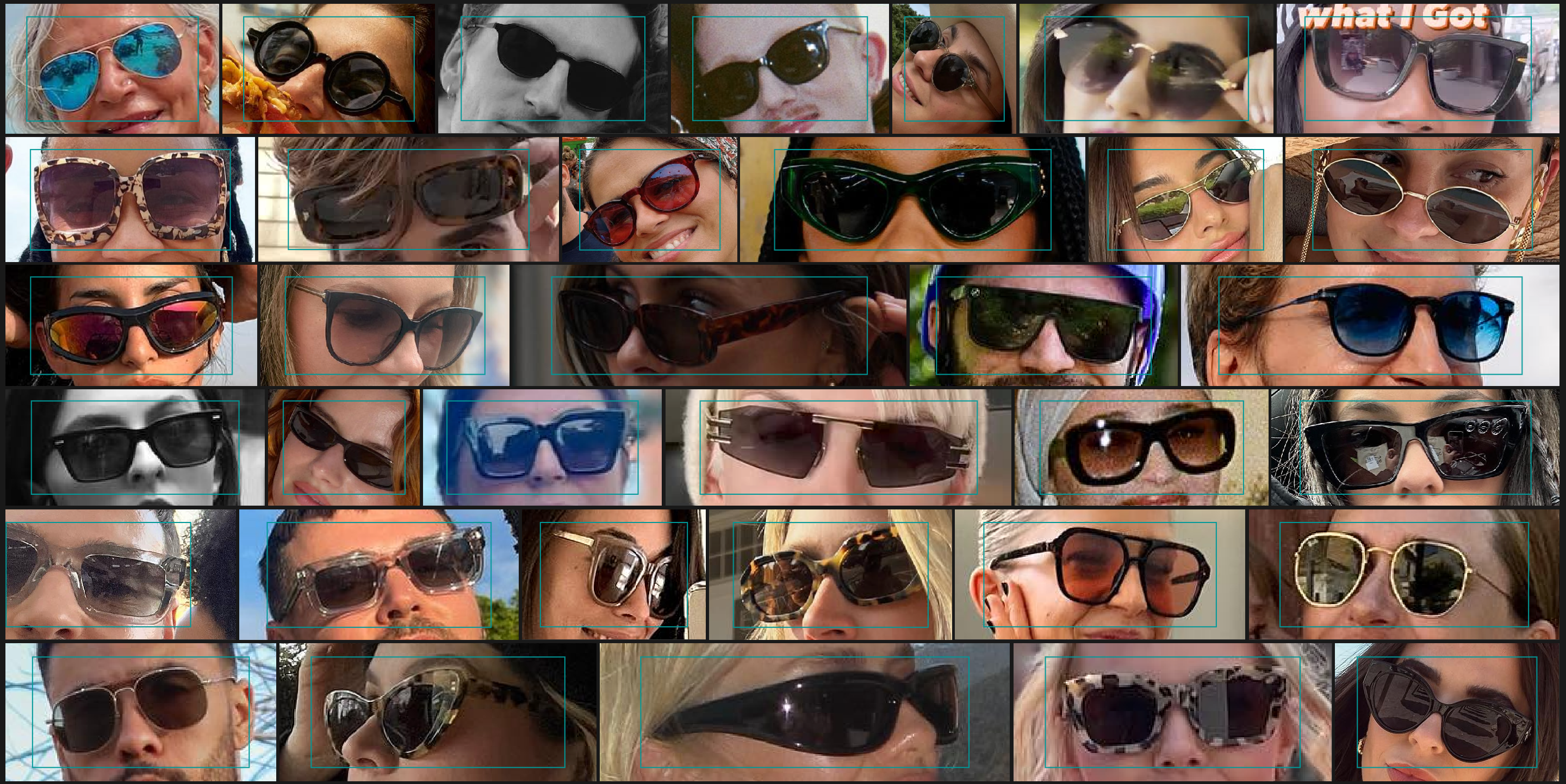 Cluster 61 | 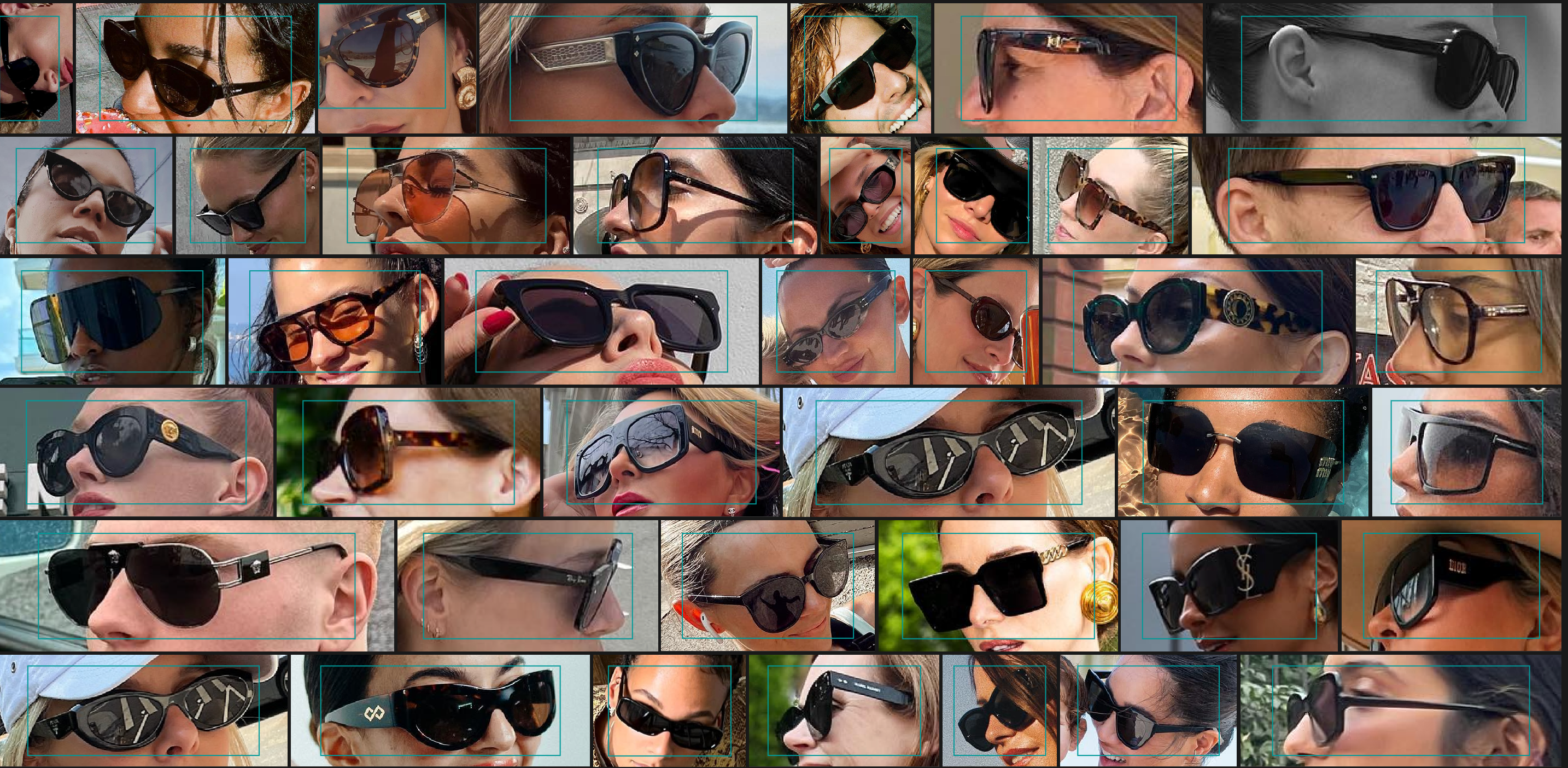 Cluster 20 |
Conversely, the two clusters presented below showcase sunglasses that are distinctive, often characterized by a smaller cluster size.
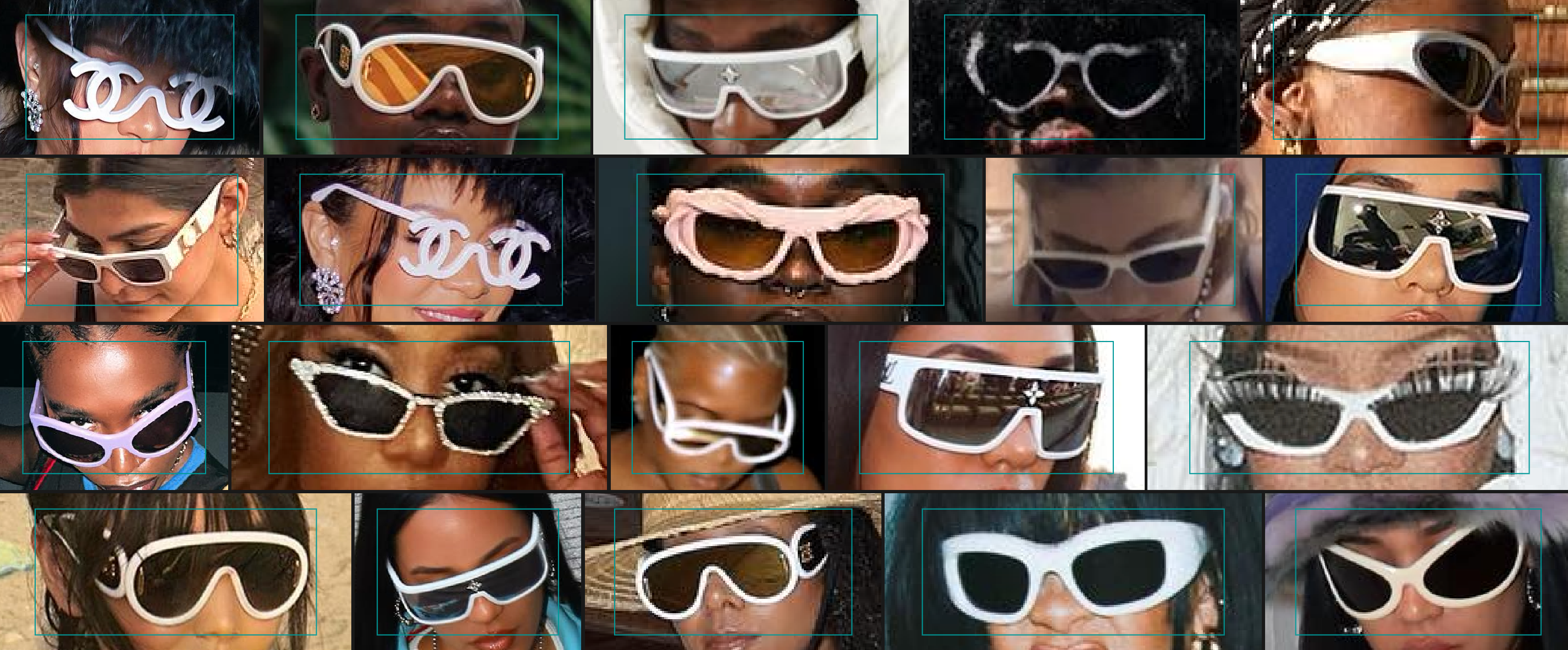 Cluster 530 | 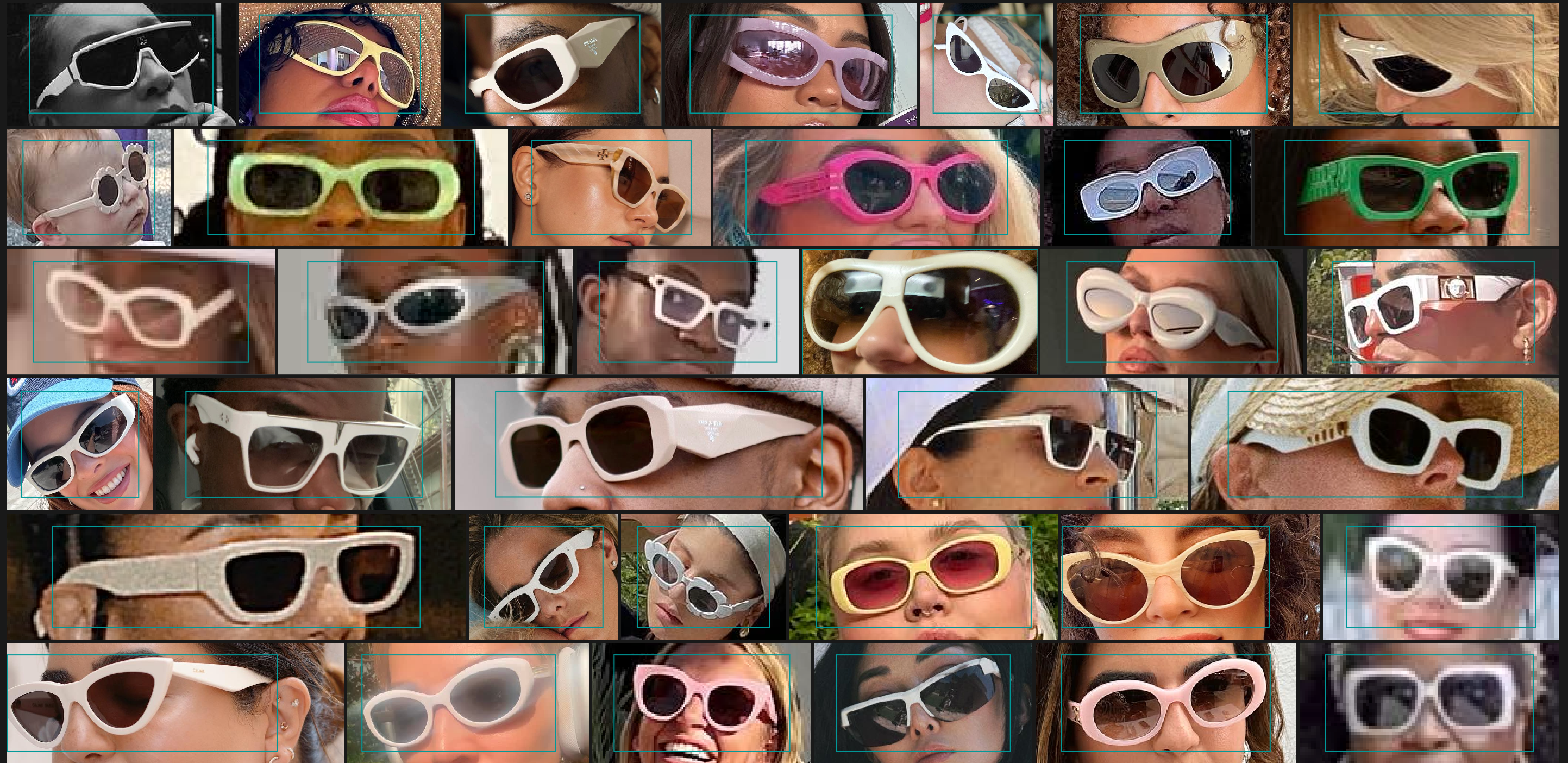 Cluster 107 |
Upon identifying an intriguing cluster, I assign it a more descriptive hierarchical tag, such as “sunglasses | wide frame, futurist”, to reflect its unique attributes.
Pink
Another interesting tag is “pink”. It highlights clusters of fashion items featuring the color pink.
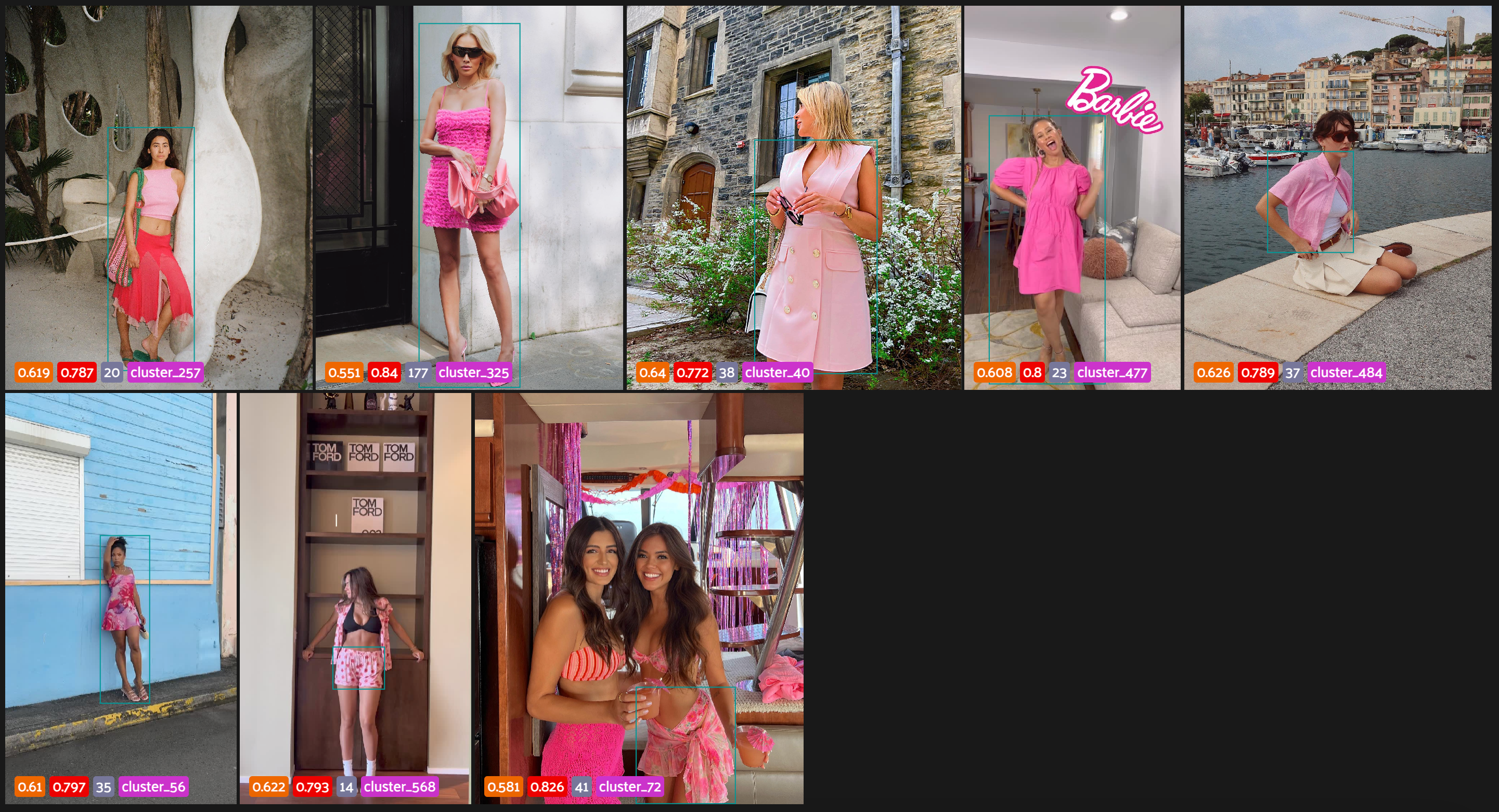
Clusters tagged with “pink”.
The prominence of pink in 2023 can be largely attributed to the cultural impact of the movie “Barbie”, which has made the color a significant fashion statement.

Image source: Barbie (2023)
Clusters tagged with “pink” tend to be smaller in size, implying that they may provide more distinct insights than the larger, more generic clusters such as those labeled “sunglasses”.
A thorough review of the “pink” clusters reveals no uniform pattern; rather, they contain a wide variety of pink items. This variety suggests that the interest lies in the color “pink” itself, signifying a trend that focuses on the color rather than particular styles or items.
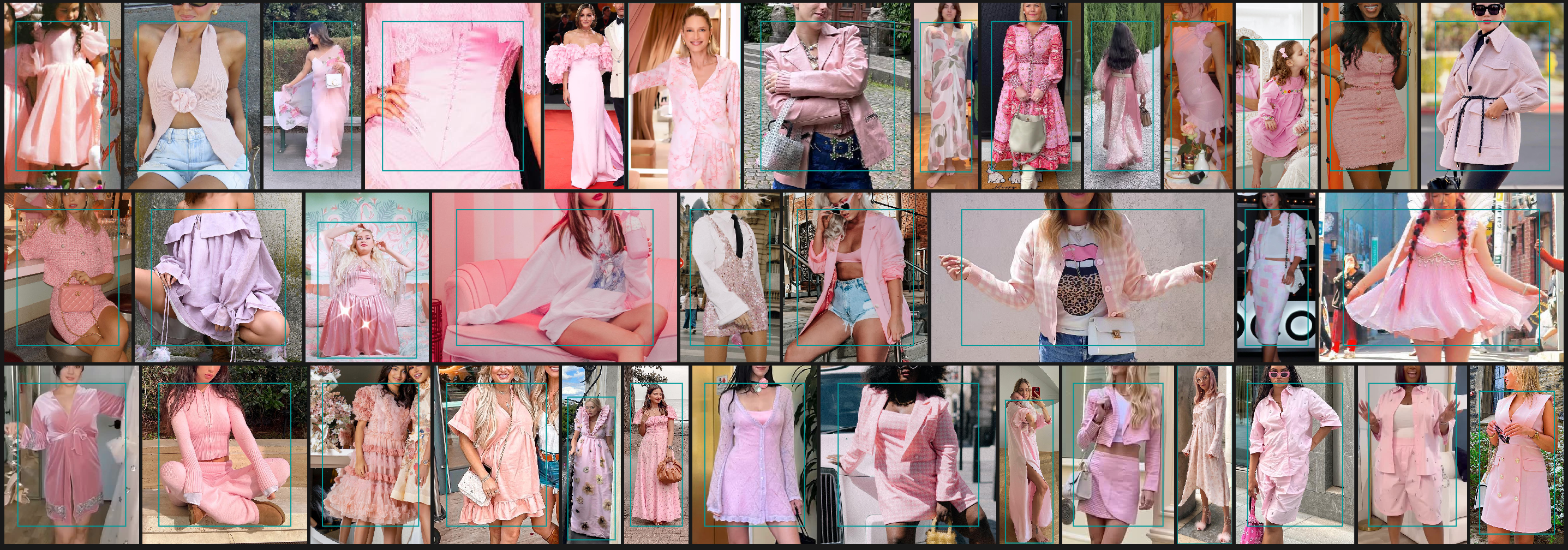 Cluster 40 |  Cluster 56 |
 Cluster 72 |  Cluster 257 |
 Cluster 325 | 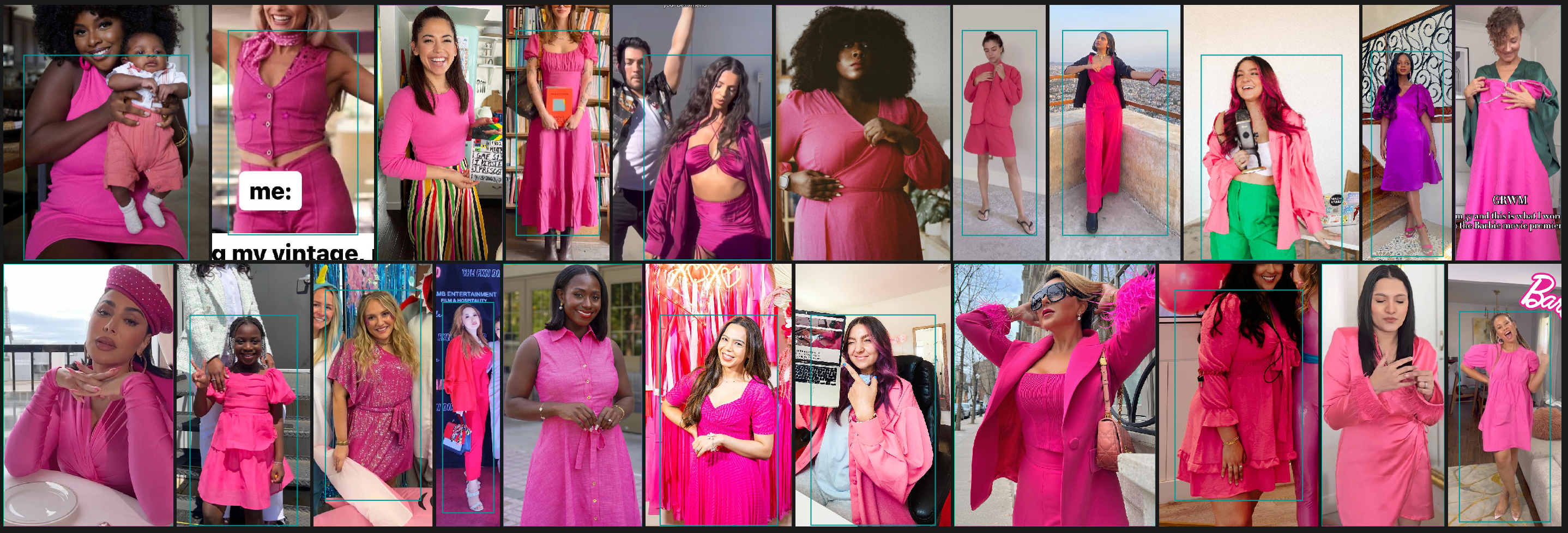 Cluster 477 |
 Cluster 484 | 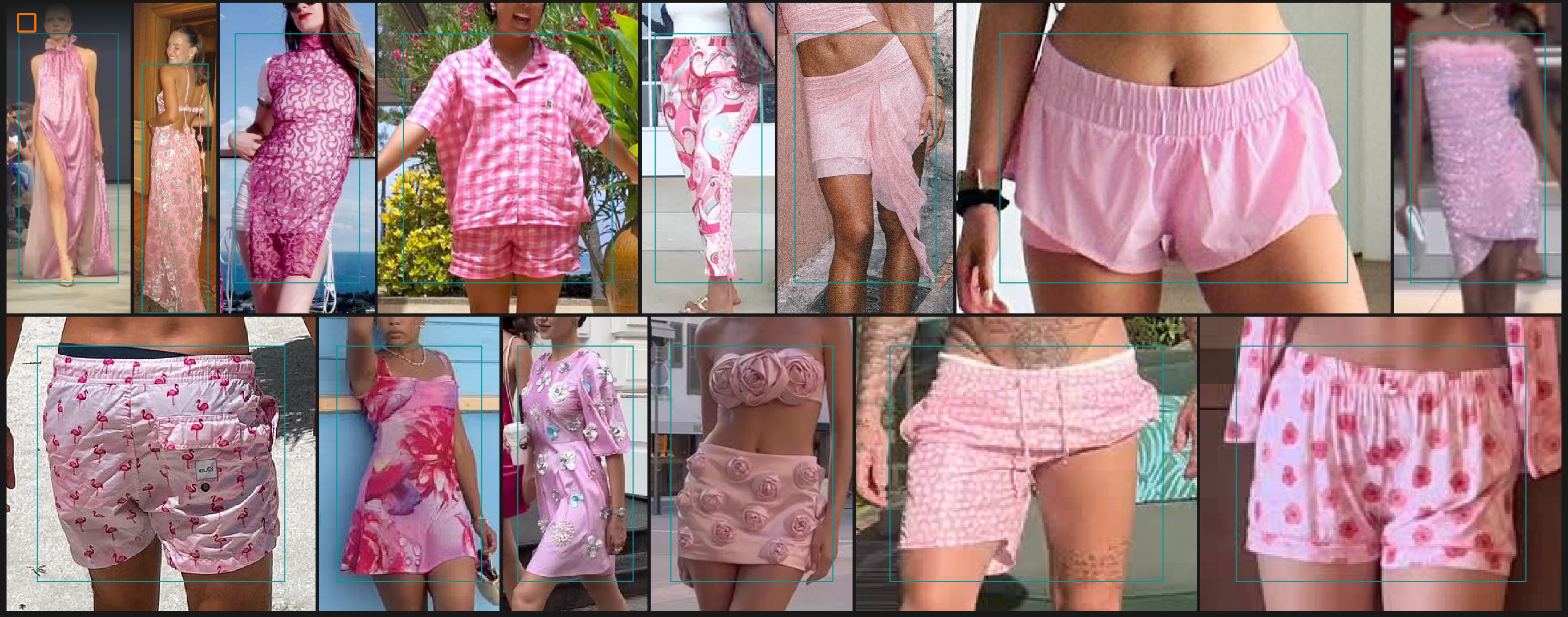 Cluster 568 |
Reflections
Manually browsing through clusters is an engaging process that can uncover hidden gems, although it may not always be the most time-efficient method. Nonetheless, it serves as a good starting point, particularly when the specific criteria are not yet clearly defined.
Moreover, for first-time analyses, there’s significant value in manually vetting the output. Close examination of the results not only confirms whether the process meets expectations but also helps to quickly identify any potential issues.
As the methodology matures and confidence in the process grows, more scalable approaches become necessary. Automated methods can be employed to identify clusters of interest using pre-defined metrics at the cluster level, such as uniqueness or internal consistency. These methods can streamline the discovery process and unearth valuable insights in a more systematic manner.